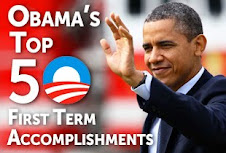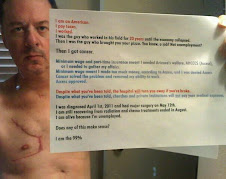Barack Obama says taxes on families are at their lowest point in 50 years
In an interview with CBS’ 60 Minutes that
aired on Sept. 23, 2012, President Barack Obama defended his economic
policies of the past four years, including his tax policies.
Interviewer Steve Kroft noted that on the campaign trail, Mitt Romney has been arguing that Obama is "crushing economic freedom with taxes, regulations and high-cost health care." Obama responded, "Yeah, well, it's a lot of rhetoric, but there aren't a lot of facts supporting it. Taxes are lower on families than they've been probably in the last 50 years. So I haven't raised taxes. I've cut taxes for middle-class families by an average of $3,600 for a typical family."
The numbers
Since Obama said "probably in the last 50 years," we will be somewhat flexible on the time frame.
The most detailed look at this question comes from a table compiled by the Urban Institute-Brookings Institution Tax Policy Center, a nonpartisan group that has analyzed tax plans of the presidential candidates. The table calculates the average federal tax rate for four-person families at three different income levels -- one-half the median income, the median income, and twice the median income. The "average rate" means actual taxes paid as a percentage of a taxpayer’s income after deductions and exemptions. The table includes data from 1955 to 2011.
For one-half the median income and the median income, average tax rates were lower in 2009, 2010 and 2011 than any year back to 1955 except for 2008. So Obama's largely right for these groups.
For taxpayers earning twice the median -- which was just over $151,000 in 2011 -- tax rates were lower in Obama’s three years than in any year back 44 years, to 1968. But rates were lower for this group between 1955 and 1967. So by this measure, Obama’s claim wasn’t perfect either.
These figures account for federal taxes only, so we also looked at different data that included all personal taxes -- federal, state and local. A president has the biggest influence over federal taxes but can also indirectly influence state and local taxation by expanding or shrinking the size of federal payments to the states.
Using data from the Commerce Department’s Bureau of Economic Analysis, we calculated the percentage of personal income spent on taxes back to 1962. We found that taxes as a percentage of personal income has varied in a narrow range over that period, never falling below 9.6 percent and never rising above 14.3 percent.
During the first three years of Obama’s presidency, taxes were 9.6 percent, 9.7 percent and 10.8 percent of personal income, respectively. Those are on the low end of this 50-year time span. The only other years to fall below the 2011 rate were 1964, 1965, 2003 and 2004.
So, again, Obama’s statistical claim isn't entirely correct.
Even though the exceptions to Obama's claim are few, they are significant -- none more so than 2008.
During the Bush presidency of 2001 to 2008, average tax rates declined steadily. But they bottomed out in 2008 -- which was one year before Obama took office, and the year in which the recession hit full force. They then rose slightly under Obama.
A key reason for the especially low rates in 2008 was the recession, experts said.
"One expects taxes, in the aggregate, to decrease in a recession," said Lawrence J. White, an economist at the Stern School of Business at New York University. The reason: employment shrinks, incomes fall and people move to lower tax brackets.
So while Obama’s policies, such as cuts to the payroll tax, did have some effect on today’s low average tax rates, the policies of his predecessor and the ripple effects of the poor economy Obama inherited also helped keep taxes at historically low levels.
"Taxes are historically low right now mainly because of the worst recession since the Depression, and the fact that we have record high progressivity in the tax code, meaning heavy reliance on relatively volatile high incomes," said William McBride, an economist with the Tax Foundation, a business-backed group.
Our ruling
Obama said, "Taxes are lower on families than they've been probably in the last 50 years."
On the numbers, his statistic isn't exact, but it's pretty close -- average tax rates are in fact lower than most years in the past five decades, at least for the three income groups we looked at.
However, the decline in average tax rates was already under way under Bush and the recession helped keep them low. We rate the claim Mostly True.
Interviewer Steve Kroft noted that on the campaign trail, Mitt Romney has been arguing that Obama is "crushing economic freedom with taxes, regulations and high-cost health care." Obama responded, "Yeah, well, it's a lot of rhetoric, but there aren't a lot of facts supporting it. Taxes are lower on families than they've been probably in the last 50 years. So I haven't raised taxes. I've cut taxes for middle-class families by an average of $3,600 for a typical family."
The numbers
Since Obama said "probably in the last 50 years," we will be somewhat flexible on the time frame.
The most detailed look at this question comes from a table compiled by the Urban Institute-Brookings Institution Tax Policy Center, a nonpartisan group that has analyzed tax plans of the presidential candidates. The table calculates the average federal tax rate for four-person families at three different income levels -- one-half the median income, the median income, and twice the median income. The "average rate" means actual taxes paid as a percentage of a taxpayer’s income after deductions and exemptions. The table includes data from 1955 to 2011.
For one-half the median income and the median income, average tax rates were lower in 2009, 2010 and 2011 than any year back to 1955 except for 2008. So Obama's largely right for these groups.
For taxpayers earning twice the median -- which was just over $151,000 in 2011 -- tax rates were lower in Obama’s three years than in any year back 44 years, to 1968. But rates were lower for this group between 1955 and 1967. So by this measure, Obama’s claim wasn’t perfect either.
These figures account for federal taxes only, so we also looked at different data that included all personal taxes -- federal, state and local. A president has the biggest influence over federal taxes but can also indirectly influence state and local taxation by expanding or shrinking the size of federal payments to the states.
Using data from the Commerce Department’s Bureau of Economic Analysis, we calculated the percentage of personal income spent on taxes back to 1962. We found that taxes as a percentage of personal income has varied in a narrow range over that period, never falling below 9.6 percent and never rising above 14.3 percent.
During the first three years of Obama’s presidency, taxes were 9.6 percent, 9.7 percent and 10.8 percent of personal income, respectively. Those are on the low end of this 50-year time span. The only other years to fall below the 2011 rate were 1964, 1965, 2003 and 2004.
So, again, Obama’s statistical claim isn't entirely correct.
Even though the exceptions to Obama's claim are few, they are significant -- none more so than 2008.
During the Bush presidency of 2001 to 2008, average tax rates declined steadily. But they bottomed out in 2008 -- which was one year before Obama took office, and the year in which the recession hit full force. They then rose slightly under Obama.
A key reason for the especially low rates in 2008 was the recession, experts said.
"One expects taxes, in the aggregate, to decrease in a recession," said Lawrence J. White, an economist at the Stern School of Business at New York University. The reason: employment shrinks, incomes fall and people move to lower tax brackets.
So while Obama’s policies, such as cuts to the payroll tax, did have some effect on today’s low average tax rates, the policies of his predecessor and the ripple effects of the poor economy Obama inherited also helped keep taxes at historically low levels.
"Taxes are historically low right now mainly because of the worst recession since the Depression, and the fact that we have record high progressivity in the tax code, meaning heavy reliance on relatively volatile high incomes," said William McBride, an economist with the Tax Foundation, a business-backed group.
Our ruling
Obama said, "Taxes are lower on families than they've been probably in the last 50 years."
On the numbers, his statistic isn't exact, but it's pretty close -- average tax rates are in fact lower than most years in the past five decades, at least for the three income groups we looked at.
However, the decline in average tax rates was already under way under Bush and the recession helped keep them low. We rate the claim Mostly True.


 When President Barack Obama sat down
for an interview with "60 Minutes," he said taxes for families are lower
now than in decades. We checked to see if that's correct.
When President Barack Obama sat down
for an interview with "60 Minutes," he said taxes for families are lower
now than in decades. We checked to see if that's correct.
























No comments:
Post a Comment